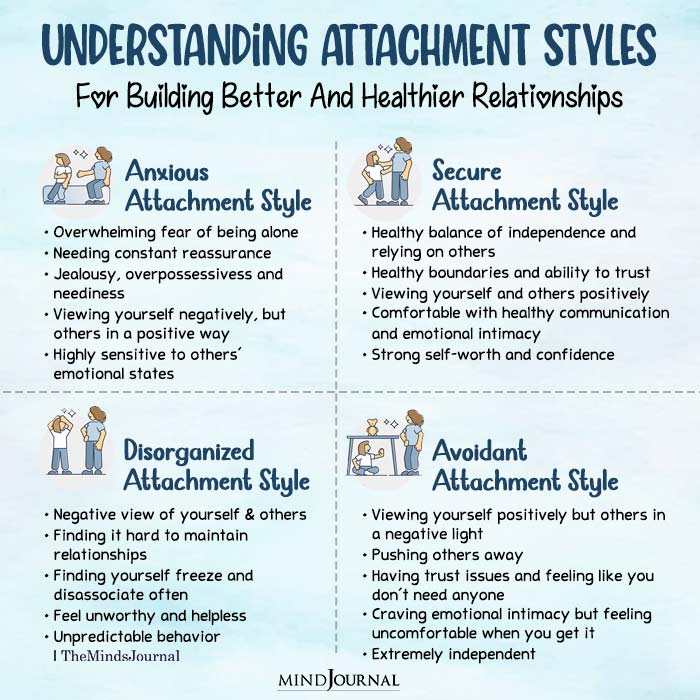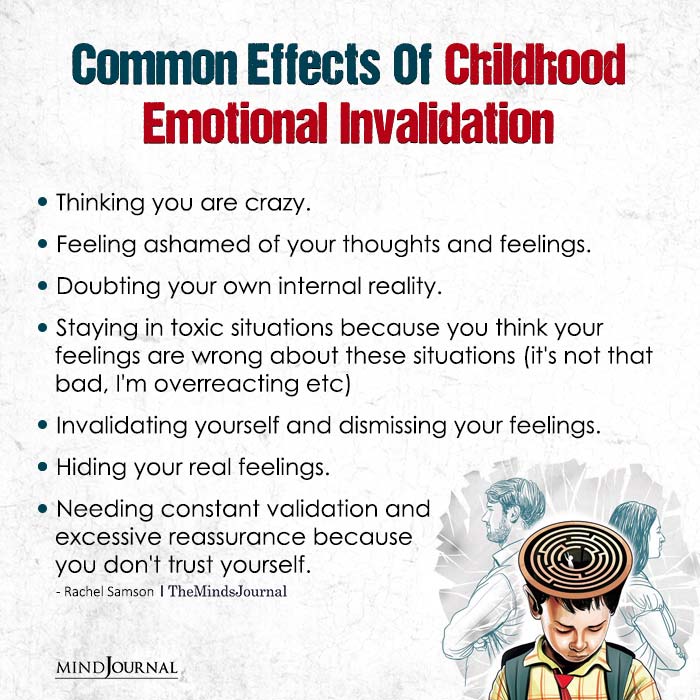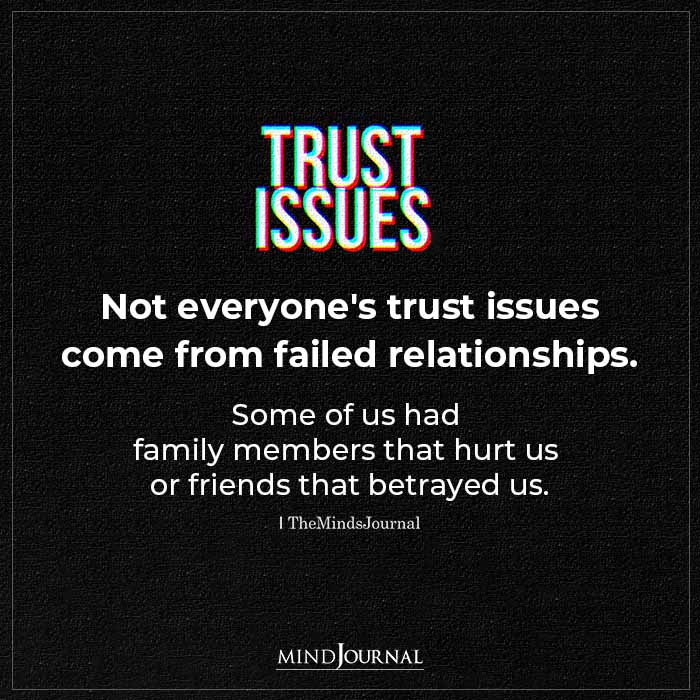Relationships can be complex and sometimes leave us feeling confused and emotionally overwhelmed. Have you ever experienced a rollercoaster of mixed signals and conflicting emotions with your partner? Do you find yourself wanting closeness one moment and pushing them away the next? If these questions resonate with you, you may be dealing with disorganized attachment in relationships.
In this article, we will explore disorganized attachment style, what causes disorganized attachment, signs, and impact on relationships. By understanding disorganized attachment style, you can begin to unravel the complexities that hinder your ability to form secure and harmonious connections.
Related: What Is Disorganized Attachment And How It Can Ruin Your Relationships
What Is Disorganized Attachment Style?
Disorganized attachment in relationships originates from a place of inconsistency during a child’s early developmental phase. Unlike secure, anxious, or avoidant attachment styles that have a predictable pattern, disorganized attachment is characterized by a lack of clear attachment behavior.
It’s like navigating through a maze without a clear exit in sight, leading to a chaotic relational pattern that extends into adulthood. If you have a disorganized attachment style, you may seek closeness and then avoid intimacy, and you may act confused or disoriented when stressed.
Now that we know what is disorganized attachment style, let’s find out what causes disorganized attachment.

What Causes Disorganized Attachment?
Understanding the roots of disorganized attachment in relationships can offer profound insights into the behavioral patterns seen in adults. The causes often trace back to early childhood experiences and interactions with primary caregivers.
Here are five causes of disorganized attachment style detailed below:
1. Inconsistent Caregiving
This creates a fundamental insecurity in children regarding the reliability and predictability of their environment. When caregivers oscillate between being responsive and neglectful, children are unable to form a secure attachment.
This inconsistency can lead to confusion and anxiety, as children become unsure of whether their needs will be met. In later relationships, this pattern of inconsistency may replay, manifesting as disorganized attachment.
2. Trauma or Abuse
Trauma, especially during formative years, can significantly impact attachment styles. Abuse (whether physical, emotional, or sexual) distorts the child’s perception of love, trust, and safety.
Children subjected to abuse may develop a disorganized attachment style as they struggle to reconcile their need for safety and comfort with the source of their fear and pain, often their caregivers.
3. Parental Unresolved Loss or Trauma
Sometimes, the emotional baggage carried by parents from their past traumas or unresolved loss can interfere with their ability to provide consistent, nurturing care.
Children, sensing their caregivers’ emotional turmoil, may become anxious, fearful, or disoriented, contributing to disorganized attachment as they attempt to navigate the unstable emotional terrain.
4. Fearful/ Frightening Parenting
If a child perceives their caregiver as frightening or feels frightened in their presence due to erratic, angry, or unpredictable behaviour, it can lead to disorganized attachment.
The paradox of seeking comfort from a source of fear creates a disorganized strategy in the child, who becomes trapped in a cycle of approach-avoidance.
Related: Disorganized Attachment Style: What Is It And How It Affects Relationships
5. Early Separation or Loss
Early separation from a caregiver or experiencing a significant loss can disrupt the formation of a secure attachment.
Whether through death, divorce, or another form of separation, the loss can create a pervasive sense of insecurity and fear about the stability of relationships, contributing to disorganized attachment.
6. Neglect
Neglect, whether emotional or physical, denies children the essential care, attention, and validation needed to develop a secure attachment.
Neglected children might learn to expect disappointment and become resigned to self-sufficiency, leading to a disorganized attachment style where they struggle with trust, intimacy, and dependency in relationships.
After understanding what causes disorganized attachment, let’s break down the signs of disorganized attachment in relationships.

10 Signs Of Disorganized Attachment In Relationships
1. You display mixed feelings and conflicting behaviours.
You often experience a push-pull dynamic in your relationships. You desire closeness and intimacy, but at the same time, feel overwhelmed or fearful of it. This internal conflict can result in contradictory behaviors, such as seeking emotional connection one moment and then distancing yourself the next.
This also leads to a lot of confusion and emotional turbulence for both you and your partner in the relationship, making it challenging to establish a stable and secure connection.
2. You suffer from anxiety and often feel scared of other people’s reactions.
If you suffer from disorganized attachment in relationships, you may experience heightened anxiety and fear in your relationships. This fear can stem from a deep-seated belief that relationships are unsafe or unpredictable. You may anticipate rejection, betrayal, or emotional harm, leading to a constant state of worry and apprehension.
Moreover, this can lead to hypervigilance, anticipating and overreacting to potential threats, which can strain the emotional well-being of both partners.
3. You have a very inconsistent way of communicating with your partner.
You struggle to express your needs clearly or consistently. Your communication style may oscillate between withdrawing emotionally, avoiding confrontation, and seeking reassurance or validation.
And this lack of consistent and clear communication can hinder effective problem-solving, emotional understanding, and the establishment of healthy boundaries within the relationship.
4. Your relationships always turn out to be emotional rollercoasters.
Whenever you are in a relationship, you often exhibit frequent emotional ups and downs. You find it difficult to regulate your emotions, leading to intense mood swings and unpredictable emotional reactions. This instability can create a chaotic and tumultuous environment within the relationship.
You try very hard to keep your head in the right place, but most of the time, your emotions end up getting the better of you; instead of you controlling them, they end up controlling you.
Related: How Childhood Attachment Patterns Affects Adult Relationships
5. You self-sabotage your relationships.
Disorganized attachment in relationships can manifest as self-sabotage also. You may engage in behaviors that undermine the stability and growth of the partnership.
This can include picking unnecessary fights, creating drama, or engaging in self-destructive patterns, all of which badly affects the establishment of trust and healthy connection.
6. You suffer from trust issues and hypervigilance.
Due to past experiences of inconsistency, betrayal, or trauma, people with disorganized attachment may struggle with trust.
You find it challenging to rely on your partners or believe in their intentions. This lack of trust ends up leading to hypervigilance, constant skepticism, and a tendency to interpret innocent actions as potential threats.

7. You have difficulty with intimacy and vulnerability.
Having a disorganized attachment style can make it challenging for you to fully engage in intimacy and vulnerability in your relationships.
You may have a deep-seated fear of emotional closeness, feeling vulnerable, and exposing your true self. This fear can result in walls, emotional barriers, and difficulties forming deep emotional connections.
8. You display disoriented behaviors during conflicts.
When faced with stress or conflict, you show signs of disoriented behaviors. You freeze, dissociate, or become confused and overwhelmed.
These responses stem from a lack of consistent coping strategies and an inability to navigate conflict in a coherent and adaptive manner. Developing healthy coping mechanisms and effective conflict resolution strategies can go a long way in helping you snap out of these disoriented behaviours.
9. You have difficulty resolving relationship ambiguity.
If you have disorganized attachment in relationships, then it can be challenging for you to navigate relationship ambiguity or uncertainty.
You may struggle with making decisions, setting boundaries, or defining the nature of the relationship. This ambiguity can create confusion and emotional distress for both your partner and you.
Related: How Your Attachment Style Influences the Success of Your Relationship
10. You keep on repeating unhealthy relationshp patterns.
Individuals with disorganized attachment may find themselves repeating unhealthy relationship patterns from their past.
You may unconsciously seek out partners who replicate the inconsistent or abusive dynamics you experienced in your early attachment relationships. Breaking free from these patterns and establishing healthier connections can be a significant challenge.
Conclusion
A disorganized attachment style can make it hard to form secure and fulfilling relationships. By understanding its causes and signs, you can uncover the complexities behind these patterns.
Recognizing disorganized attachment in relationships and what causes disorganized attachment is the first step toward healing and growth. With patience, self-reflection, and professional guidance, you can navigate challenges and develop healthier, more secure relationships.
Disclaimer: This article is for informational purposes only and is not intended as a substitute for professional mental health advice, diagnosis, or treatment. While we strive for accuracy, we do not guarantee the completeness or reliability of the information provided. Readers should always seek guidance from a qualified mental health professional for any concerns regarding their mental well-being.











Leave a Reply